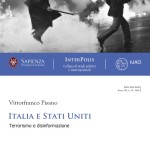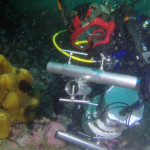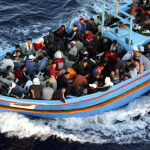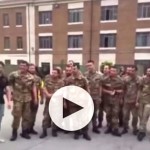In response to the illegal annexation of Crimea and deliberate destabilisation of a neighbouring sovereign country, the EU has imposed restrictive measures against the Russian Federation.
Overview
The European Union is focusing its efforts on de-escalating the crisis in Ukraine. The EU calls on all sides to continue engaging in a meaningful and inclusive dialogue leading to a lasting solution; to protect the unity and territorial integrity of the country and to strive to ensure a stable, prosperous and democratic future for all Ukraine’s citizens. The EU has also proposed to step-up its support for Ukraine’s economic and political reforms.
An extraordinary meeting of the Council of the European Union on 3 March 2014 condemned the clear violation of Ukrainian sovereignty and territorial integrity by acts of aggression by the Russian armed forces as well as the authorisation given by the Federation Council of Russia on 1 March for the use of the armed forces on the territory of Ukraine. The EU called on Russia to immediately withdraw its armed forces to the areas of their permanent stationing, in accordance with the Agreement on the Status and Conditions of the Black Sea Fleet stationing on the territory of Ukraine of 1997.
In a statement of the Heads of State or Government following an extraordinary meeting on 6 March, the EU underlined that a solution to the crisis must be found through negotiations between the Governments of Ukraine and the Russian Federation, including through potential multilateral mechanisms. Having first suspended bilateral talks with the Russian Federation on visa matters and discussions on the New (EU-Russia) Agreement as well as preparations for participation in the G8 Summit in Sochi, the EU also set out a second stage of further measures in the absence of de-escalatory steps and additional far-reaching consequences for EU-Russia relations in case of further destabilisation of the situation in Ukraine.
In the absence of de-escalatory steps by the Russian Federation, on 17 March 2014 the EU imposed the first travel bans and asset freezes against Russian and Ukrainian officials following Russia’s illegal annexation of Crimea. The EU strongly condemned Russia’s unprovoked violation of Ukrainian sovereignty and territorial integrity.
The EU believes a peaceful solution to the crisis should be found through negotiations between the Governments of Ukraine and the Russian Federation, including through potential multilateral mechanisms.
The EU also remains ready to reverse its decisions and reengage with Russia when it starts contributing actively and without ambiguities to finding a solution to the Ukrainian crisis.
Diplomatic measures
1.Instead of the G8 summit in Sochi, a G7 meeting was held in Brussels on 4-5 June. EU countries also supported the suspension of negotiations over Russia’s joining the OECD and the International Energy Agency.
2.The EU-Russia summit was cancelled and EU member states decided not to hold regular bilateral summits. Bilateral talks with Russia on visa matters as well as on the New Agreement between the EU and Russia were suspended. In addition, a re-assessment of EU-Russia cooperation programmes is currently ongoing with a view to suspending the implementation of EU bilateral and regional cooperation programmes. Projects dealing exclusively with cross-border cooperation and civil society will be maintained.
Restrictive measures (asset freezes and visa bans)
1.95 persons and 23 entities in total are under EU restrictions, including 91 persons and 10 entities responsible for actions against Ukraine’s territorial integrity. This also includes 13 entities in Crimea and Sevastopol whose ownership has been transferred contrary to Ukrainian law. 4 persons have been listed for their close links to Russian decision makers.
Full list of persons under sanctions
Restrictions for Crimea and Sevastopol
As the EU does not recognise the annexation of Crimea and Sevastopol, the following restrictions have been imposed.
1.The EU has adopted a prohibition on imports originating from Crimea and Sevastopol unless accompanied by a certificate of origin from the Ukrainian authorities. In addition, trade and investment restrictions are in place for the following sectors: infrastructure projects in transport, telecommunications and energy and in relation to the exploitation of oil gas and minerals. Key equipment for the same six sectors may not be exported to Crimea and Sevastopol; finance and insurance services related to such transactions must not be provided.
Information note to EU businesses operating and/or investing in Crimea/Sevastopol
Measures targeting sectoral cooperation and exchanges with Russia (“Economic” sanctions)
1. EU nationals and companies may no longer buy or sell new bonds, equity or similar financial instruments with a maturity exceeding 90 days, issued by major state-owned Russian banks, development banks, their subsidiaries outside the EU and those acting on their behalf or under their control. Services related to the issuing of such financial instruments, e.g. brokering, are also prohibited.
2. An embargo is in place on the import and export of arms and related material from/to Russia. It covers all items on the EU common military list.
3.Exports of dual use goods and technology for military use or for a military end user are prohibited. All items in the EU list of dual use goods are included.
4.Exports of certain energy-related equipment and technology to Russia will be subject to prior authorisation by competent authorities of Member States. Export licences will be denied if products are destined for deep-water oil exploration and production, arctic oil exploration or production and shale oil projects in Russia.
As regards the second, third and fourth measures, an exemption is made for activities under pre-existing contracts.
Information note on capital markets
Measures concerning economic cooperation
1.On 16 July, the European Council requested the EIB to suspend the signature of new financing operations in the Russian Federation. European Union Member States will coordinate their positions within the EBRD Board of Directors with a view to also suspending financing of new operations.
2.The Council invited the Commission to re-assess EU-Russia cooperation programmes with a view to taking a decision, on a case by case basis, on the suspension of the implementation of EU bilateral and regional cooperation programmes. However, projects dealing exclusively with cross-border cooperation and civil society will be maintained.
More information on EU sanctions against Russia





 04 Set 2014
04 Set 2014
 Inviato da Anthony Brown
Inviato da Anthony Brown 
















